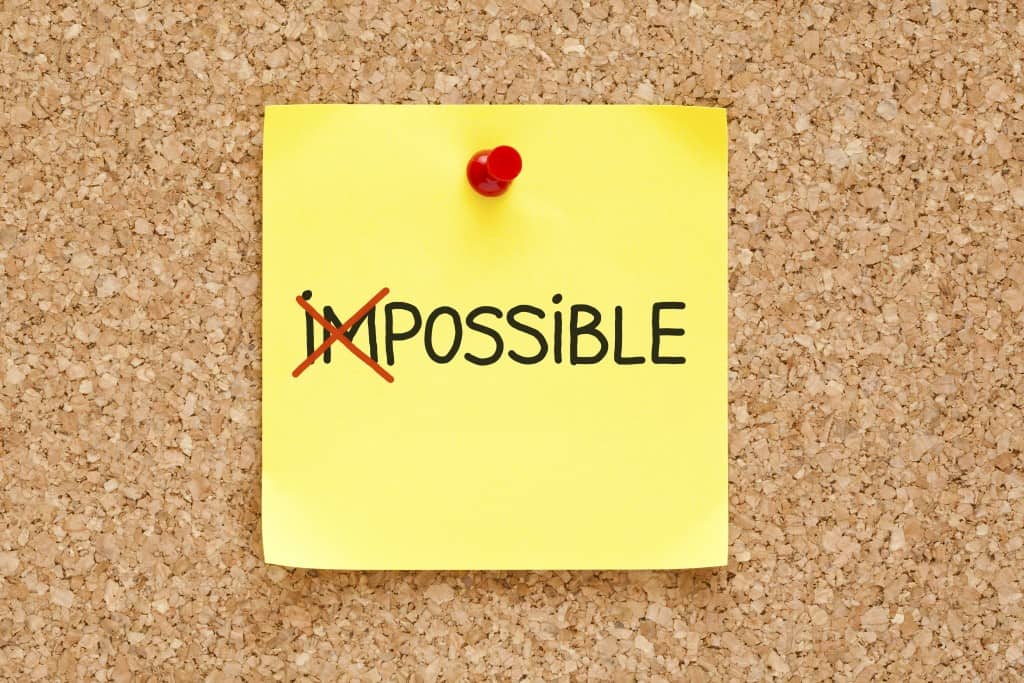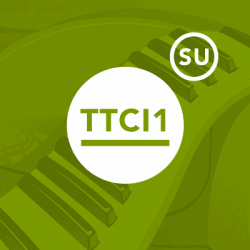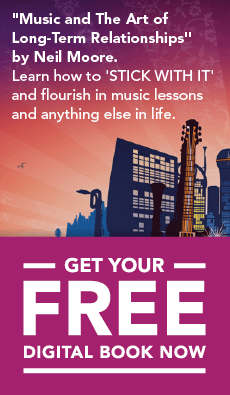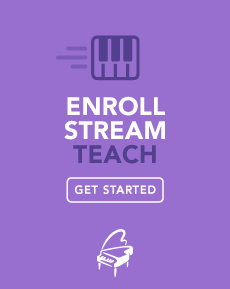
Credit: Fabrizio Paterlini – The Art of the Piano
Creating your own original music is one of the most beneficial aspects of studying an instrument and being a musician, even if you’re not especially interested in becoming a composer or a songwriter, and even if you don’t think of yourself as being especially creative.
I developed the Tune Toolkit – Comp & Improv, Vol.1 & 2 program to make it easy to empower you in making great-sounding original music. But having the right tools is only one of three keys to reaping the benefits of comp and improv. It’s also important both to understand why making up your own music is good for you and to maintain a constructive attitude in how you go about things.
The Why: Reasons to Create Your Own Music
There are actually several good reasons why spending time composing and improvising music is great for every musician.
Some people simply find it fun and enjoyable. We do call it playing an instrument, after all. From childhood onward, using your imagination in creative play is one of the hallmarks of all kinds of activities that people do for pleasure.
The opportunity to express yourself is another big reason to create music. We turn to music to connect with our feelings, happy and sad and everything in between. More than we can just by listening to music, musicians can express those feelings by choosing how to interpret a piece through performance. Creating our own original music takes things to an even more profound level, allowing what’s inside of you to come out not only in how you play something but in what you play as well.
There is no one right way, no one right answer. Only by trying again and again can you develop your abilities and create new things.
It’s really important to realize, though, that this isn’t all just for people who think of themselves as being creative. Robert Fritz, a well-known author, consultant and artist, says something very relevant about this. He talks about how creating is an action. It’s something you do, not something you are. It doesn’t matter whether you “are” creative or not, or even whether you feel creative or not. You can create something anyway. You just have to know how.
Even if you’re not especially interested in becoming a composer or a songwriter, learning to engage in that act of creation is still enormously valuable. We already know that, compared to other methods that introduce written musical notation from the start, the Simply Music Piano method makes it easier to learn to play more sophisticated pieces. Similarly, compared to having to learn what someone else composed, you can even more quickly get to greater levels of physically sophisticated performance by being your own source for what to play. Creating your own music, especially improvisationally, becomes a regular exercise routine that improves skills in all sorts of ways to support everything else you do as a musician.

Credit: www.tobeattitudes.com
The How: A Constructive Attitude
How you go about an activity can be everything. To succeed at getting all the benefits of creating your own music, it’s important to have a constructive attitude about what it even means to succeed. This boils down to two things. Do something instead of nothing, and be kind to yourself as you do whatever that something is!
When you’re learning a new piece, you understand that it’s not going to sound the way it’s supposed to until you’re done learning it. You expect that it’ll take time to get there, but at least you have some sense of what the end result is supposed to sound like, so you’re always comparing yourself to that. In that situation, comparison is a good thing. It helps you hone in on your destination.
But when you’re creating, and especially when you’re learning how to create in the first place, it’s essentially deadly to compare what you’re creating to something else, especially to the work of more advanced improvisers and composers. At best, you’ll end up not really creating something new because you’ll be thinking too much about something else that already exists. At worst, you’ll judge yourself harshly, and that’s likely to shut down your motivation to create.
In my work as the musical director of the Mop & Bucket Company improvisational theatre group, we often talk about how important it is to celebrate failure. Of course, there are times when failure isn’t so great to celebrate — if you don’t do well on an important exam, or if the surgeon messes up an operation, etc. Sometimes, there really is a distinction between correct and incorrect. But when we’re talking about a creative activity, things are different. There is no one right way, no one right answer. Only by trying again and again can you develop your abilities and create new things. You do this even — and especially — when the results you’re getting aren’t necessarily what you want. Creating and learning are two sides of the same coin. By staying involved, you learn more all the time, and new things keep being created.
Just like when learning a piece, when you’re learning to create, you need to understand that how you create now is not going to be how you’ll create later on. You need to expect that it’ll take time to get to a point where you may feel confident about your own creative process and about how to get to a particular kind of result you may have in mind. Unlike when learning a piece, though, it may not be so obvious how to compare what you’re doing to something else to know if you’re making progress.

The best thing you can do for yourself is, once again, just have a playful attitude. When you’re improvising and composing, the piano is a sandbox. Play in it. Just do something, and then do something else. And keep doing more. Have opinions about what you like and what you don’t like, but don’t judge anything as a failure or success. Give yourself permission to play, to experiment, to explore. It doesn’t matter whether you come up with something nobody’s ever done before. All that matters is that you keep finding territory that’s new for you.
One extra note on failure: it’s just not so big a concern when you’re creating music as opposed to learning to play an existing piece. You’re always about to create some new thing next anyway. But it goes even deeper than that. The legendary jazz trumpeter Miles Davis said, “Do not fear mistakes, there are none,” while the great record producer Brian Eno said, “Honor your mistake as a hidden intention.” Rubber, penicillin, Teflon and Velcro were all innovated inadvertently. What you think is a mistake or a failure could be a happy accident that could lead you to something new, maybe even a breakthrough in your own creative process.
The Third Key
So you’re on board with why you should spend time composing and improvising, and you have an open and exploratory attitude. Now you just need some idea about what to do. You could do just anything you wanted, but you’ll get much farther if you don’t try to completely reinvent the wheel. In Part 2, I’ll talk about this third and final key to reaping the benefits of composition and improvisation — the tools you work with.
 The Tune Toolkit – Comp & Improv program is an exciting new package for teachers and students, developed by Advanced Simply Music Teacher Mark S. Meritt, for everyone who wants to explore creating their own music. Like the bucket and spade in your musical sandbox, Tune Toolkit provides practical, fun resources and offers a structured pathway for achieving real results. It is a powerful enhancement to the experience of composing and improvising in your Simply Music lessons. Talk to your Simply Music Teacher to learn more.
The Tune Toolkit – Comp & Improv program is an exciting new package for teachers and students, developed by Advanced Simply Music Teacher Mark S. Meritt, for everyone who wants to explore creating their own music. Like the bucket and spade in your musical sandbox, Tune Toolkit provides practical, fun resources and offers a structured pathway for achieving real results. It is a powerful enhancement to the experience of composing and improvising in your Simply Music lessons. Talk to your Simply Music Teacher to learn more.
For more advice from Mark on Composition & Improvisation, check out this article.







